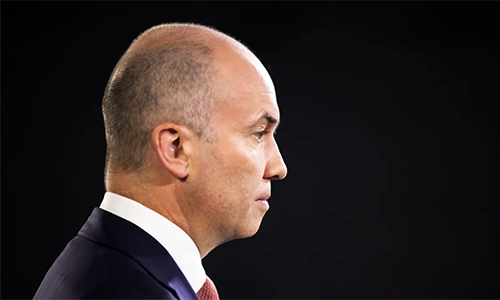Earlier this year, Sciences Po’s feminist association, Décollectif Féministe, organised a ‘non-mixed’ meeting, which explicitly excluded men and white attendees. Intended as a ‘safe space’ for women of colour, the event sparked an immediate backlash. An MP from Marine Le Pen’s National Rally called it ‘racist and discriminatory.’ Ultimately, the meeting was cancelled before it took place, but it highlights the deep rot that has set in at France’s elite universities.
Sciences Po – long the premier training ground for presidents, prime ministers, and diplomats from Jacques Chirac to Emmanuel Macron – has seen its status plummet. Once the jewel of French academia, corporate recruiters are increasingly turning their backs on its graduates, who are perceived more as activists than professionals. In a recent survey by Décideurs Magazine, recruiters expressed growing disillusionment with the school. Gone are the days when Sciences Po was synonymous with producing well-rounded, pragmatic leaders. Graduates of French grandes écoles, the country’s elite universities, are no longer as hireable as they once were – at least, not in the eyes of corporate recruiters.
Just as David Butterfield recently wrote in The Spectator about Cambridge University, where he resigned in frustration over the ‘infantilisation’ of education, France’s elite institutions are facing a similar, if not worse, decline. Unlike the UK, France’s predicament has a distinctly severe twist. The ideology permeating French schools isn’t just ‘woke’ or ‘progressive’; it’s also infected with Islamo-gauchisme, Islamo-leftism, a blend of left-wing ideology with Islamist sympathies that has become deeply embedded within French academic culture. Nowhere is this shift more evident than at Sciences Po.
Gone are the hard-hitting courses in economics and public administration. In their place, Sciences Po’s curriculum has taken on a distinctly ideological slant, with entire modules now devoted to topics like gender ideology, colonial guilt, and systemic discrimination. Today’s graduates seem more focused on identity politics and theories of systemic oppression than on mastering the fundamentals of policy, administration, and political theory.
One of the more divisive aspects of this shift is the influence of the ‘decolonial’ movement, which casts modern France as a continuing colonial power entrenched in systemic oppression. Far from simply examining historical injustices, the decolonial framework portrays French institutions – particularly the police and military – as instruments of oppression, infusing the curriculum with an anti-state bias that fundamentally alters the school’s role as a training ground for future policymakers.
This transformation became glaringly visible during the Israel-Palestine conflict. As tensions escalated globally, Sciences Po erupted in radical posturing. Students tore down posters depicting Israeli hostages – sparking public criticism and heightening tension at the school. Lecture halls were barricaded, and riot police even lined the street outside the school. What was once a dignified intellectual hub resembled a scene from a protest rally.
Sciences Po’s unique brand of Islamo-gauchisme has encouraged alliances with pro-Islamic movements on campus, where student groups position themselves in opposition to the French state. Students have resisted the Charte de la Laïcité – a charter intended to reinforce secular principles in public institutions – arguing that it unfairly targets Muslim students and faculty. This resistance isn’t just an ideological stand; it’s a challenge to laïcité itself, the bedrock of French public life, which holds that religion and state must remain strictly separate.
The ideological shift isn’t limited to Sciences Po; it’s sweeping across other French elite institutions. At Paris-Saclay University, a top science and engineering school, students have launched campaigns to ‘cancel’ invited speakers whose views they find controversial, resulting in multiple disinvitations and raising serious concerns about free speech. In science, where debate and scrutiny are essential, the stifling of dissent is particularly troubling.
HEC Paris, France’s top business school, has also bent under these pressures. Professors now face strict guidelines on ‘offensive language’ and ‘microaggressions,’ leading many to self-censor in fear of student backlash. Even discussions on topics like economic inequality, colonial trade, or corporate strategies in global markets are increasingly framed through a narrow, socially conscious lens that’s better suited to an activist seminar than to a business school. As a result, HEC’s practical, globally focused approach to business education is being diluted by ideology, leaving students ill-equipped for the competitive realities of the corporate world.
Meanwhile, Sciences Po and other elite institutions have embraced symbolic gestures over substantive intellectual exploration. Administrators have partnered with Middle Eastern institutions, including universities in Qatar. These partnerships, critics say, conflict with France’s secular values and its stance on liberal principles. Unlike similar arrangements in the UK or US, these partnerships rarely face open scrutiny in France.
Administrators have also engaged in symbolic renaming, erasing names of historical figures now deemed controversial and replacing them with figures celebrated for their anti-colonial or progressive stances. For instance, at Sciences Po the Amphithéâtre Caquot, named after Albert Caquot, a renowned French engineer and inventor, was renamed after Simone Veil, a champion of women’s rights and a Holocaust survivor. Instead of encouraging students to grapple with history’s complexities and ambiguities, administrators are handing them a simplified moral framework, one that prioritises ideological purity over intellectual diversity.
This broader trend raises serious questions about the future of France’s elite educational institutions – and, indeed, about the nation’s ability to foster future leaders. Just as Butterfield warned of Britain’s slide into ideological infantilisation, France must face its own reckoning. Formerly prestigious schools have drifted into ideological conformity, at the expense of teaching students the basics. Critical inquiry and open debate is frowned upon.
Ideology has transformed these institutions into laboratories for activism, where academic rigor no longer exists. The once-proud reputation of France’s elite schools has collapsed, leaving behind an education stripped of its substance and prestige. It’s no surprise that graduates are finding it harder to get jobs.









